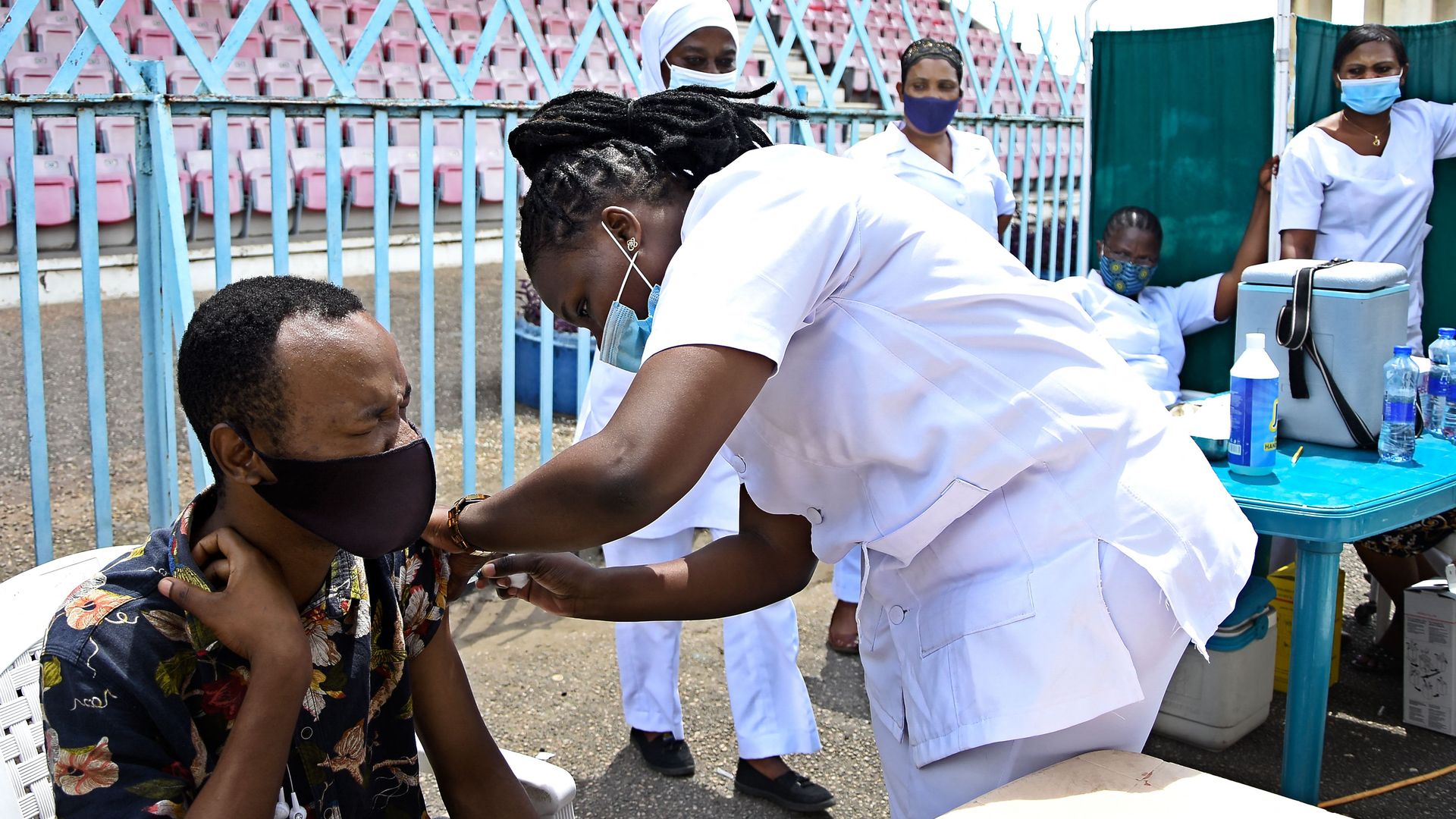Feb 17, 2022 - Politics & Policy
U.S. to spend $250 million in vaccine support to African countries
Add Axios as your preferred source to
see more of our stories on Google.

A Tanzanian medic injects a dose of the vaccine developed by Johnson & Johnson. Photo: STRINGER/AFP via Getty Images
